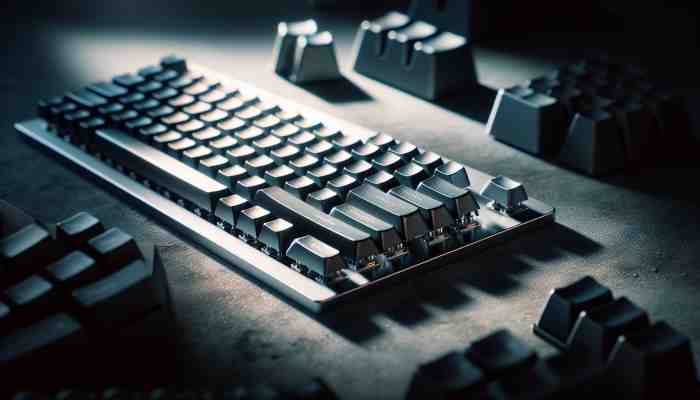# Exploring Mechanical Keyboards: Why They Reign Supreme
When it comes to improving your typing speed and overall experience at the keys, your choice of keyboard plays a pivotal role. Imagine transforming each keystroke into a velvety-smooth motion. This isn’t an advert for the latest luxury car, folks—it's the real feel of typing on a mechanical keyboard! For anyone serious about their WPM (words per minute) or who seeks the holy grail of type tests, diving into the world of mechanical keyboards could be a game-changer. Let’s dissect the hype and understand why these keyboards aren't just tools, but treasures.
# The Allure of Mechanical Keyboards
Mechanical keyboards, unlike their membrane counterparts, are made with individual mechanical switches under each key. This design not only contributes to their satisfying tactile feedback but also to their unmatched durability. Each press is met with a confident click (or a thock, for you enthusiasts), which is not only gratifying but also incredibly addictive.
# 1. Tactile Feedback That Fuels Faster Typing
In the realm of typing tests like TypeTest.io, where every millisecond counts, the tactile response from a mechanical keyboard can be your best ally. The tangible bump before the actuation point (when a keypress is registered) provides essential feedback to your fingers, potentially boosting your typing speed and accuracy. This feedback is crucial during timed type tests where efficiency reigns supreme.
# 2. Durability to Endure the Test of Time (and Typing)
These slick machines are built to last. With a lifespan of up to 50 million keystrokes per key, a mechanical keyboard can endure years of extensive typing. Compare this with the average membrane keyboard — often good for only about 5 to 10 million keystrokes — and it’s clear where the smart money lies for typists who mean business.
# 3. Customization at Your Fingertips
One size fits all? Please. The real magic of mechanical keyboards lies in their versatility. From swappable keycaps to customizable switches, each element of your keyboard can be tailored to fit your typing style and aesthetic preferences. Whether you prefer the feather-light touch of Cherry MX Reds or the definitive resistance of MX Blues, there's a switch to match your tactile preference.
# 4. The Unseen Hero: Reduced Typing Fatigue
The strategic design of mechanical switches also means less force is required to register a keystroke. This softer touch reduces finger fatigue during prolonged typing sessions, such as during marathon type tests or long hours of coding. Less fatigue leads to more consistent typing speeds and, importantly, a healthier typing practice.
# 5. Aesthetically Pleasing and Audibly Satisfying
Beyond functionality, mechanical keyboards come in a variety of styles and often feature customizable RGB lighting to illuminate your typing experience (literally). Not to mention, the rhythmic sound of the keys can transform a mundane typing test into a symphonic performance of clicks and clacks. For some, this alone is enough reason to switch!
# Why Mechanical Keyboards and Type Tests are a Match Made in Heaven
For avid typists, competitive type testers, and data geeks alike, the mechanical keyboard isn't just a tool — it's part of the competitive edge. In the quest for increased WPM and typing speed, every detail counts, and getting comfortable with mechanical precision is a surefire tactic to top the leaderboards on typing test sites like TypeTest.io.
# Embrace the Mechanical Movement
Whether you are a seasoned typist looking to tweak your setup or a newcomer eager to dive into the deep end, exploring the world of mechanical keyboards is likely to revolutionize your typing test outcomes and your overall interaction with the digital world. Remember, every keypress is an opportunity to enhance your speed, challenge your skills, and perhaps most importantly, enjoy the journey of typing perfection.
Embrace the chance to upgrade your typing experience—from mundane to mechanical—and let each click fuel your quest for typing supremacy!
